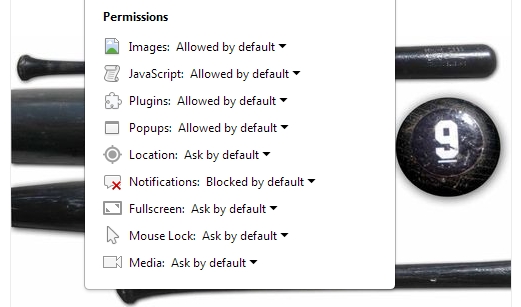Google today unveiled a new version of its Chrome web browser 23.0.1271.64 for Linux,Windows, and Mac OS. New version can be updated now using browser’s integrated updater or it can be downloaded directly through google.com/chrome.
The major addition in new version is the support of the DNT(Do Not Track) protocol. Microsoft was the first one to add the support for the DNT protocol in Internet Explorer 9, followed by Mozilla Firefox, Apple’s Safari, and then Opera. Microsoft is still working hard to push forward DNT support, as they were the first to include this option by default in its Internet Explorer 10, whereas currently Google Chrome 23 has an option to enable it only. Now all five major browsers now support the standard after Google has given the green signal for DNT in Chrome.

Yet Google wants something much better than Do Not Track, as the company hints in its announcement:
This latest release also includes an option to send a “do not track” request to websites and web services. The effectiveness of such requests is dependent on how websites and services respond, so Google is working with others on a common way to respond to these requests in the future.
More reason to joy for Chrome fans as the company has also enabled GPU-accelerated video decoding feature for Chrome on Windows platform, which can increase and improve battery life upto 25% as dedicated graphics chips consumes very less power than CPUs
Moreover, Chrome 23 addresses 14 security concerns out of which 7 rated High and 7 rated Medium
- [Mac OS only] [$1000] [149904] High CVE-2012-5115: Defend against wild writes in buggy graphics drivers. Credit to miaubiz.
- [$3500] [157079] Medium CVE-2012-5127: Integer overflow leading to out-of-bounds read in WebP handling. Credit to Phil Turnbull.
- [Linux 64-bit only] [$1500] [150729] Medium CVE-2012-5120: Out-of-bounds array access in v8. Credit to Atte Kettunen of OUSPG.
- [$1000] [143761] High CVE-2012-5116: Use-after-free in SVG filter handling. Credit to miaubiz.
- [Mac OS only] [$1000] [149717] High CVE-2012-5118: Integer bounds check issue in GPU command buffers. Credit to miaubiz.
- [$1000] [154055] High CVE-2012-5121: Use-after-free in video layout. Credit to Atte Kettunen of OUSPG.
- [145915] Low CVE-2012-5117: Inappropriate load of SVG subresource in img context. Credit to Felix Gröbert of the Google Security Team.
- [149759] Medium CVE-2012-5119: Race condition in Pepper buffer handling. Credit to Fermin Serna of the Google Security Team.
- [154465] Medium CVE-2012-5122: Bad cast in input handling. Credit to Google Chrome Security Team (Inferno).
- [154590] [156826] Medium CVE-2012-5123: Out-of-bounds reads in Skia. Credit to Google Chrome Security Team (Inferno).
- [155323] High CVE-2012-5124: Memory corruption in texture handling. Credit to Al Patrick of the Chromium development community.
- [156051] Medium CVE-2012-5125: Use-after-free in extension tab handling. Credit to Alexander Potapenko of the Chromium development community.
- [156366] Medium CVE-2012-5126: Use-after-free in plug-in placeholder handling. Credit to Google Chrome Security Team (Inferno).
- [157124] High CVE-2012-5128: Bad write in v8. Credit to Google Chrome Security Team (Cris Neckar).
Google, therefore has spent a total of 9,000 USD in bug bounties in this update. These bugs alone should be the enough reasons to upgrade to new version of Chrome.
More at Google
